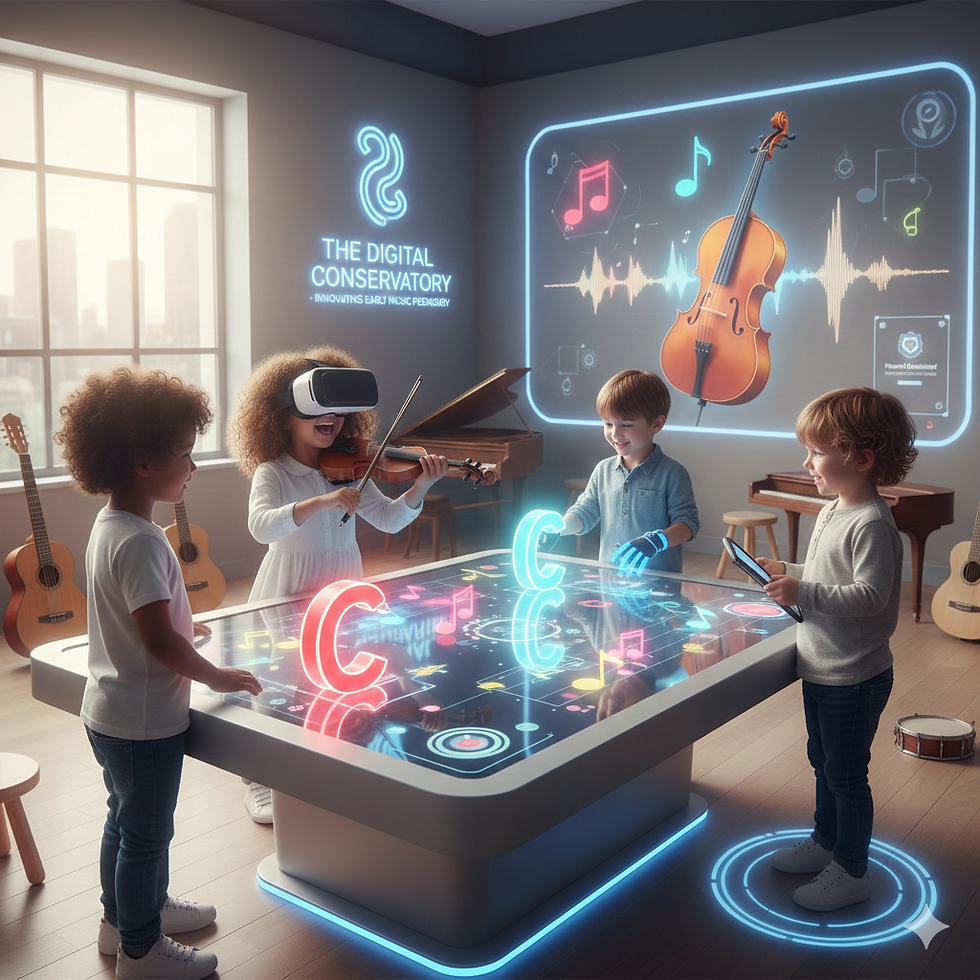"The Self-Made Sound: Formalizing Your Informal Musical Genius"
- Sep 28, 2025
- 2 min read
When we think about learning music, the first image that often comes to mind is the classroom, the teacher, or a structured lesson. But in reality, much of our musical growth happens outside of these formal spaces. Whether it’s picking up a song by ear, jamming with friends, or experimenting with new sounds on your own, informal music learning plays a huge role in shaping who we are as musicians.
Let’s break down three ideas—personal knowledge, personal epistemology, and informal music learning—and see how they connect to your journey as a music learner.

1. Personal Knowledge: What You Know Matters
Personal knowledge is the unique collection of experiences, skills, and insights that you carry. Maybe you grew up listening to bhajans at home, or you learned your first rhythm by drumming on a table. These experiences are not “lesser” than classroom learning—they are powerful because they make your music yours.
👉 Tip for learners: Keep track of your own musical discoveries. That “hack” you found for hitting a tricky note or bowing smoothly on your violin is part of your personal knowledge.
2. Personal Epistemology: How You Believe Learning Works
Personal epistemology is about your beliefs on how knowledge is gained. Do you believe that music can only be learned from a guru or a teacher? Or do you think you can teach yourself by listening, experimenting, and practicing?
Your beliefs shape your confidence. If you believe that music is only about strict training, you might hesitate to explore on your own. But if you see learning as flexible, you’ll take more risks and grow faster.
👉 Tip for learners: Trust your ear and curiosity. They are just as important as formal lessons.
3. Informal Music Learning: Beyond the Classroom
Informal learning happens when you learn music naturally—through observation, imitation, and experimentation. Think of how children pick up songs from TV, or how young instrumentalists learn riffs by replaying YouTube videos.
In Carnatic, Hindustani, or Western traditions alike, informal learning complements structured training. It builds creativity, adaptability, and a personal touch in your music.
👉 Tip for learners: Make time for unstructured practice. Try improvising, playing along with recordings, or teaching a friend.
Why It All Matters
When you combine personal knowledge (your experiences), personal epistemology (your beliefs about learning), and informal learning (your explorations), you create a well-rounded musical identity. This balance allows you not only to perform but also to understand, question, and create music in ways that feel meaningful.
🎶 Takeaway for learners: Don’t think of music learning as only what happens in class. Every note you hum, every rhythm you tap out, and every time you listen closely to a performance is part of your growth. Embrace your personal journey—it’s the secret ingredient that makes your music truly alive.



Comments